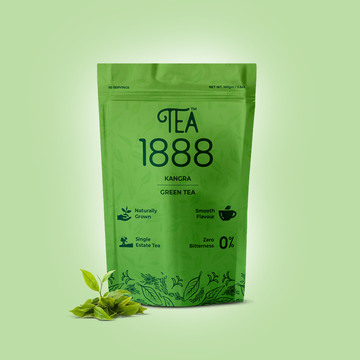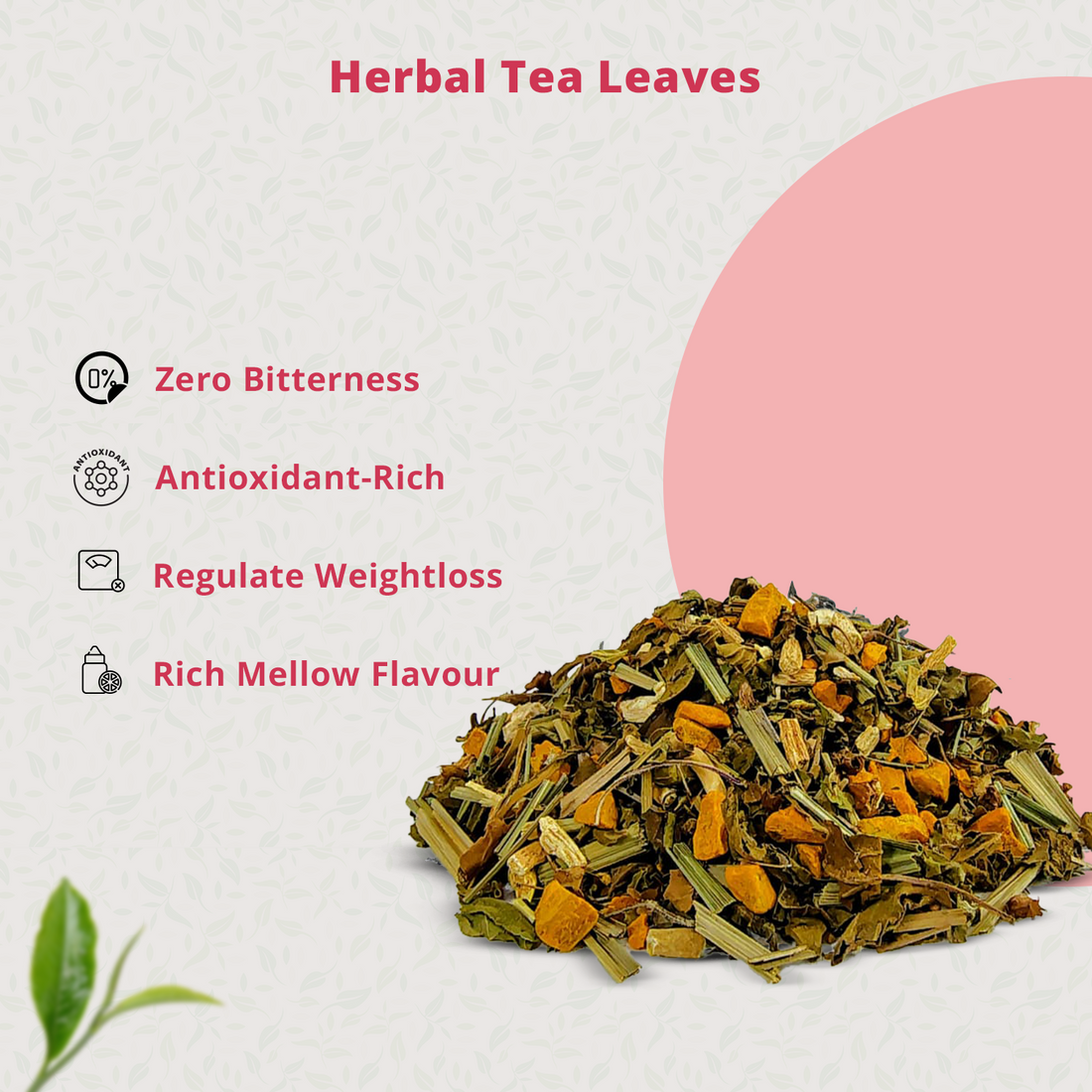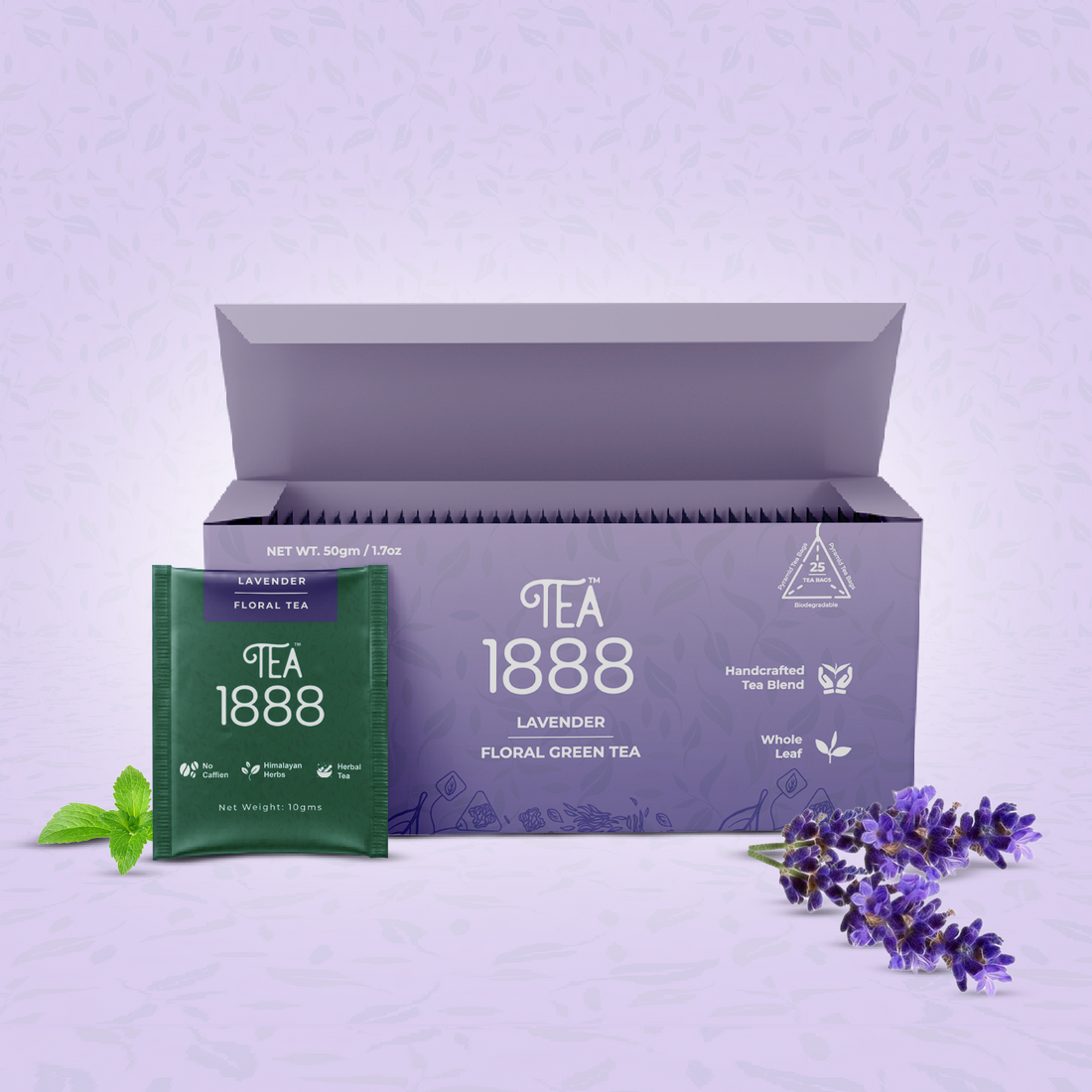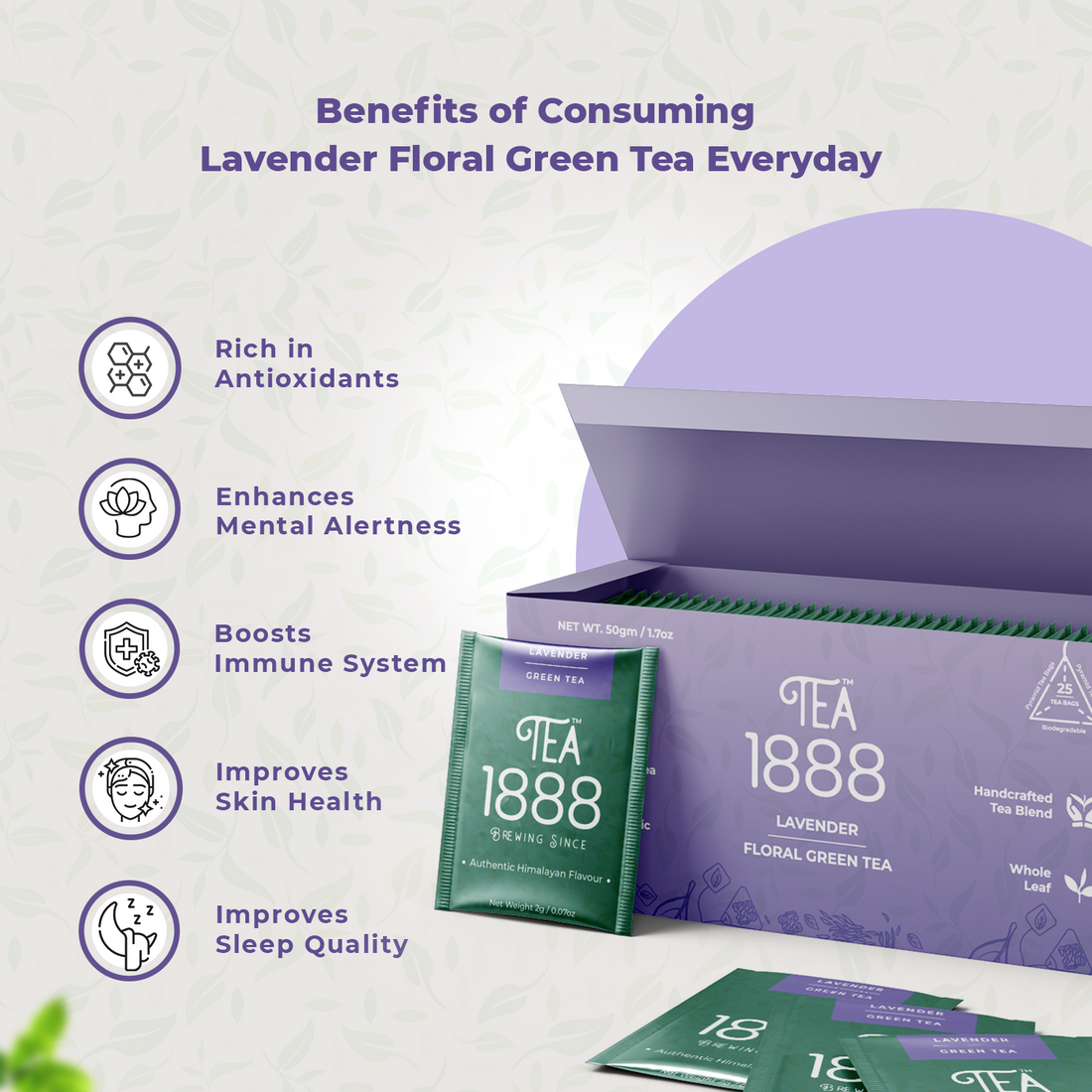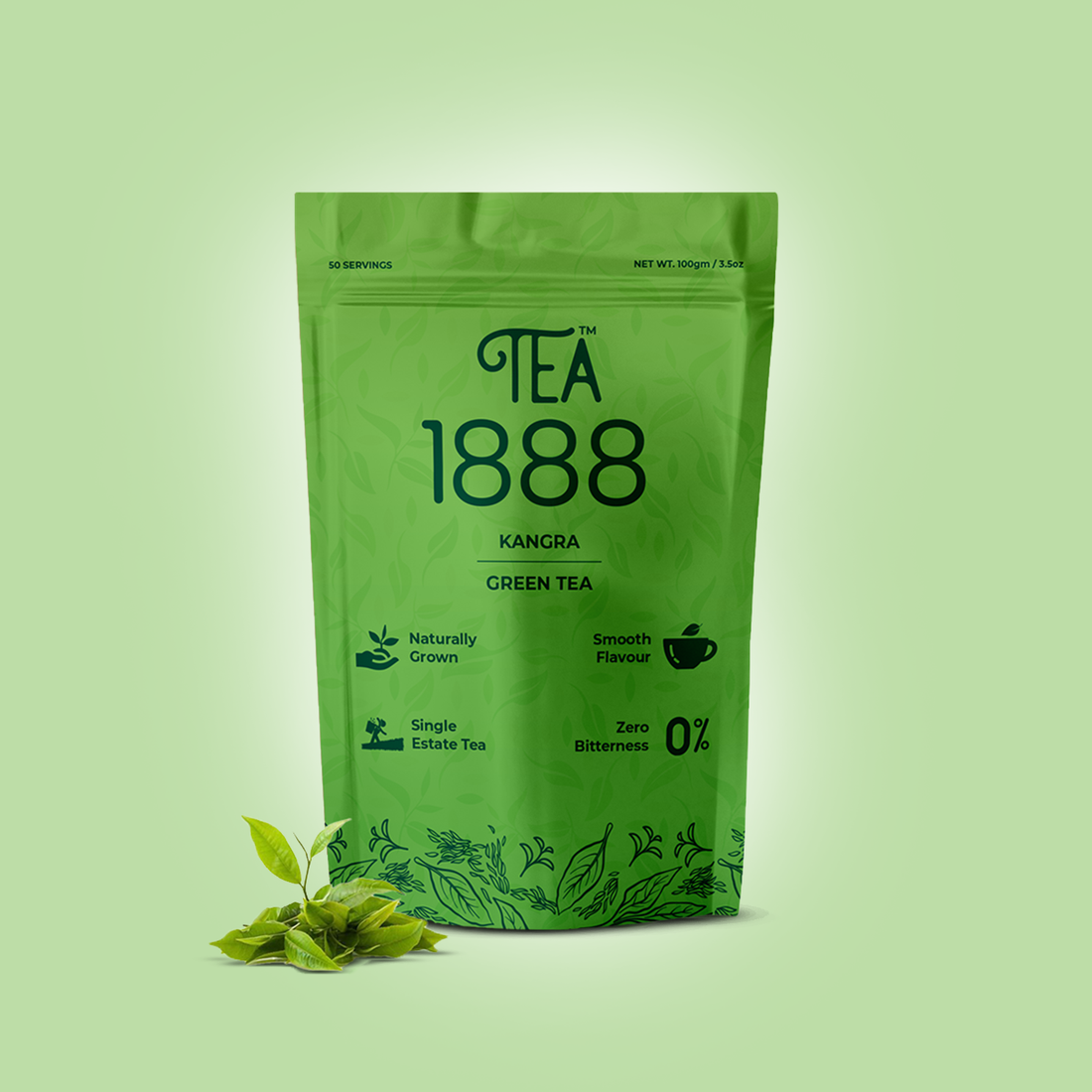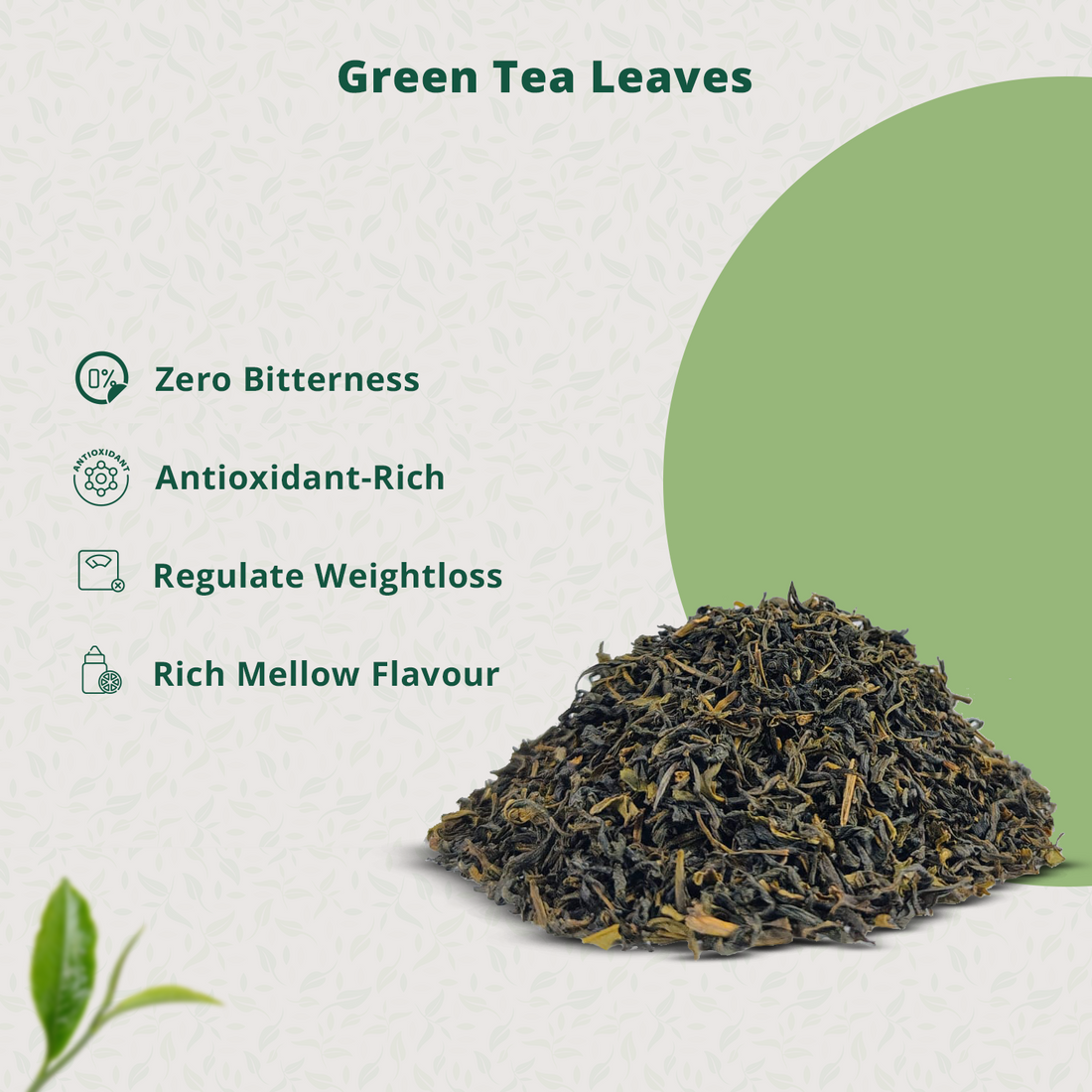Tea does more than just comfort you with a warm cup. It's the world's second most popular drink after water, and two-thirds of the world's population keeps taking them. Scientists have published over 1,000 studies about tea's amazing health benefits.
Each type of tea brings something special to your health. Green tea fights cancer with its high catechin content (30-42%). Black tea makes up 84% of tea drinking in the USA, and people who drink it daily have 27% less risk of heart disease. Tea drinkers often show better brain performance and lower chances of depression. They also have a . Women who drink tea regularly might reduce their type 2 diabetes risk by 30%.
Your daily cup of tea can boost your energy, make your skin healthier, fight chronic diseases, sharpen your mind, and help your digestion. Science shows there's a perfect tea variety for each of these benefits. Ready to make your daily cup work harder for your health? Let's find out what's hiding in every cup you steep.
Visible Benefits You Can Feel

Image Source:Healthline
Tea's effects on your body and mind are the main reasons people grab a cup each day. Unlike supplements that need weeks to work, you can feel tea's benefits within minutes after you drink it.
Boosting energy and focus
Need steady energy without coffee jitters? Black tea has about half the caffeine of coffee and gives you a more balanced boost thanks to L-theanine, a unique amino acid. This combination helps you stay alert by creating stable energy levels instead of the ups and downs you get with other caffeinated drinks. Research shows that black tea drinkers did better in executive function and memory tasks compared to those who drank water.
Tea's energy boost isn't just limited to black varieties. Green tea has compounds that can improve your cognition, mood, and brain function. Several herbs in tea blends offer these benefits too:
- Ginseng fights fatigue and sharpens mental alertness
- Sagelifts mood, alertness, attention, and memory recall
- Lion's mane mushroom boosts your brain's natural production of Nerve Growth Factor, which helps focus and alertness
Yerba mate packs about 85 mg of caffeine per cup. It gives you coffee-like energy plus antioxidants and polyphenols that support brain function. Many people find it perfect for morning or midday focus.
Improving sleep with herbal teas
Herbal teas can be great natural sleep aids. People have used chamomile tea as a sleep remedy for centuries because of its mild sedative effects. A flavonoid called apigenin makes this possible by binding to specific brain receptors that reduce anxiety and make you drowsy. Research found that new mothers who drank chamomile tea for two weeks reported better sleep than those who didn't.
Lavender tea creates a beautiful purple drink with specific benefits. Women who had one cup daily for two weeks felt less tired. Valerian root tea might increase gamma-aminobutyric acid (GABA) levels, a brain chemical that reduces anxiety and helps you relax.
These sleep-friendly teas do more than just help you fall asleep. They help create a healthy bedtime routine that sets you up for better rest. "Behavioral changes really do help get your head in the right place so you can anticipate going to sleep," explains registered dietitian Beth Czerwony.
Reducing stress with Black and chamomile tea
Tea's stress-reducing properties make it valuable in today's high-pressure world. Chamomile tea can reduce depression symptoms that often cause sleeplessness. It contains over 120 chemical elements, including the antioxidant apigenin, which creates this calming effect. Dr. Rachel Cheatham notes, "The key to this effect appears to be regular daily consumption".
Black tea promotes both calmness and alertness. Its caffeine content stays lower than coffee, which prevents anxiety and jitters from too much caffeine. L-theanine in black tea also helps improve cognitive function, memory, and calmness.
You'll find other options to reduce stress. Peppermint tea helps curb stress-induced feelings and fatigue. Lavender is prominent for its mood-stabilizing effects. A study revealed that students who kept taking green tea had lower stress levels than the placebo group, showing its value as a daily stress management tool. You can realize the full potential of these immediate benefits by matching specific teas to your daily needs - energizing blends in the morning and calming ones at night.
Tea and Your Skin, Hair, and Aging
"Evidence is accumulating that catechins and theaflavins, which are the main polyphenolic compounds of green and black tea, respectively, are responsible for most of the physiological effects of tea." — Dr. Naghma Khan, Researcher at Department of Dermatology, University of Wisconsin
Tea doesn't just make you feel good inside - it can work wonders for your looks too. Scientists have found that some teas contain powerful compounds that can reshape your skin's health, curb aging signs, and boost your natural beauty from within.
Green tea benefits for skin elasticity
Green tea's polyphenols make your skin look younger. A 12-week double-blind study revealed amazing results. Women who kept taking a green tea drink with 1402 mg of total catechins daily saw their skin improve by a lot. Their skin showed 16% less redness from UV exposure after 6 weeks, which improved to 25% after 12 weeks. The green tea polyphenols also made positive changes to skin structure, including better elasticity, smoothness, scaling, and density.
Scientists found more proof in another clinical study using green tea extract in chitosan microparticles. The results were clear - after 4 weeks, people's skin elasticity (measured as R2) reached 0.748 compared to 0.722 in the placebo group. Photos clearly showed fewer facial wrinkles in people using the green tea treatment.
The science makes perfect sense. Green tea contains EGCG (epigallocatechin-3-gallate), a polyphenol that fights oxidation and inflammation. This compound helps skin cells grow better, which supports your skin's natural anti-aging processes. On top of that, it increases blood flow and oxygen to skin tissues, which leads to better skin quality overall.
White tea and anti-aging effects
White tea might be less processed and studied than green tea, but it has its own unique anti-aging perks. Research shows it protects your skin from both internal and external aging factors.
White tea extract shields your skin from harmful UV rays when applied directly. Inside your body, its polyphenols block several cellular components that could damage your skin's fiber network - the structure that keeps skin firm and tight. These compounds help preserve your elastin and collagen fibers that naturally decrease with age.
Scientists compared different types of tea and learned that white tea extracts worked exceptionally well on sun-damaged skin. White tea showed better results than green tea in improving wrinkles, despite different processing methods. The numbers speak for themselves - skin treated with white tea extract had 233% more moisture than untreated skin after 4 weeks, beating green tea's 196% improvement.
Hydration and detox support
Green and white teas are excellent at keeping your skin hydrated. Studies show tea extracts reduce transepidermal water loss (TEWL) - a key indicator of skin barrier function and hydration. Skin areas treated with green, white, and black tea extracts showed TEWL reductions of 82%, 87%, and 86% respectively after 4 weeks compared to untreated areas.
Tea extracts really shine in boosting moisture levels. Clinical trials showed impressive results: white tea extracts improved skin moisture by 233%, while green tea reached 196% and black tea hit 219%. These amazing hydration benefits explain why skincare companies now use teas in their products.
Drinking tea regularly works alongside topical treatments to maintain proper hydration throughout your body. Tea's polyphenols support collagen production and help maintain skin elasticity while reducing aging signs.
You can employ these scientifically proven benefits by adding tea to your daily routine and skincare regimen. Green tea's catechins and white tea's unique compounds naturally support your skin's structure, function, and appearance as you age.
Tea’s Role in Preventing Chronic Diseases

Image Source: MDPI
Studies show that drinking tea regularly helps protect against several major chronic diseases. The compounds found in different types of tea work in multiple ways to protect your long-term health and maybe even extend your life.
Lowering the Risk of Heart Disease
Tea gives you remarkable benefits for heart health. People who drink 3 or more cups of black tea daily have an 11% lower risk of coronary heart disease. Green tea provides even better protection—3 cups daily reduces cardiovascular disease risk by 27%.
Green tea's catechins prevent atherosclerosis by making your blood vessel cells work better. These compounds work by:
- Stopping LDL cholesterol from oxidizing
- Reducing blood vessel inflammation
- Making blood vessels dilate better
Black tea has different polyphenols called theaflavins and thearubigins that help your heart in other ways. A review of 10 studies found that black tea drinkers had much lower LDL cholesterol and blood pressure—two main risk factors for heart disease.
Managing Blood Sugar & Diabetes
Tea's benefits go beyond heart health to blood sugar control. Research reveals that people who drink green tea have a 30% lower chance of developing type 2 diabetes. Women seem to benefit more from this effect.
Tea fights diabetes in several ways:
Green tea's polyphenols block enzymes that break down carbs, which slows down glucose absorption. These compounds also make cells more sensitive to insulin's effects on lowering blood sugar.
Black tea works differently but just as well. Its polyphenols help insulin work better, so cells absorb glucose more easily. Oolong tea drinkers with type 2 diabetes also show lower blood sugar levels.
You'll get the best results by drinking tea regularly rather than occasionally. Having 2-3 cups daily gives you the strongest benefits for preventing and managing diabetes.
Cancer-fighting properties of polyphenols
Tea's most impressive benefit might be its cancer-fighting potential. Green tea contains 30-42% catechins, which studies show can fight cancer effectively.
Green tea's EGCG fights cancer in multiple ways:
- Stops tumors from growing by blocking their blood supply
- Makes cancer cells self-destruct
- Protects DNA from free radical damage
- Reduces cancer-promoting inflammation
Population studies show great results for specific cancers. People who drink green tea regularly have lower risks of breast, prostate, and colorectal cancers. The largest longitudinal study found that women who drank green tea before their stage I and II breast cancer diagnosis had a 16-24% lower chance of cancer returning compared to those who didn't drink tea.
Black tea's unique polyphenols can also help protect against certain cancers. Lab studies show that black tea's theaflavins can stop cancer cells from growing and make them self-destruct. While no single drink can prevent cancer completely, adding tea—especially green tea, to your daily routine is a proven way to lower your cancer risk along with other healthy habits.
Brain and Mood Benefits of Tea

Tea's amazing effects on your brain go way beyond just making you feel alert. Scientists have discovered how tea's compounds interact with your neural pathways to boost cognition, mood, and long-term brain health.
Theanine and mental clarity
L-theanine, an amino acid that exists almost only in tea leaves, acts as a powerful brain-boosting compound. This unique substance helps you relax without making you sleepy while it boosts your cognitive performance. The combination of L-theanine and caffeine improves alertness without the jitters you might get from coffee.
Studies show L-theanine works in several ways:
- It blocks excitatory neurotransmitters like glutamate that can overstimulate your brain
- It stimulates GABA production to create calming effects
- It lifts dopamine and serotonin levels, which regulate your mood
These changes lead to better cognitive function in real-life situations. L-theanine boosts verbal fluency and helps you stay focused. Scientists have linked green tea compounds to better memory and attention, especially when caffeine and L-theanine work together.
Tea and reduced risk of neurodegenerative diseases
People who keep taking tea seem to protect their brains from cognitive decline. A fascinating study found that people's brains were better connected when they drank green, oolong, or black tea at least four times weekly for about 25 years. This improved brain organization might explain why tea drinkers think better than those who don't drink tea.
Green tea looks particularly promising to prevent Alzheimer's. Research links it to lower levels of Alzheimer's biomarkers in people with healthy cognitive function. Chinese middle-aged and elderly tea drinkers scored substantially higher on memory and executive function tests. The tea-drinking group had lower serum levels of pTau181 (3.07 vs. 3.30), Aβ42 (75.87 vs. 82.19), and total Aβ (181.21 vs. 192.59) compared to non-tea drinkers.
The relationship between tea and cognitive protection depends on how much you drink. Analysis shows every three cups of tea per day reduces depression risk by 37%. Green tea substantially lowers cognitive impairment risk, with high-consumption groups showing an odds ratio of 0.26.
Mood-boosting effects of regular tea intake
Tea doesn't just protect your thinking - it's great for emotional wellbeing too. Scientists found that drinking more tea leads to lower depression risk. The protective effect grows stronger with each additional cup you drink .
Tea lifts your mood through several pathways. It affects your hypothalamic–pituitary–adrenal (HPA) axis, which controls stress responses. L-theanine reduces high plasma ACTH and cortisol levels during stressful times.
Clinical trials back up these lab findings. A double-blind, randomized placebo-controlled study showed that people taking green tea for five weeks felt less depressed than those on placebo. Tea's unique benefit comes from its ability to help you relax while staying mentally sharp.
Regular tea drinking matters more than drinking lots at once. Research suggests 1-6 cups daily works best, with 3 cups being ideal. Science now confirms what tea lovers have known for centuries - drinking tea regularly is one of the easiest and most effective ways to support your brain health and emotional wellbeing.
Immune and Digestive Support from Herbal Teas
Herbal teas are unique botanical drinks that support digestive health and boost immune function. Scientific research backs these natural brews that go beyond their delightful flavors to provide therapeutic benefits.
Lemongrass tea benefits for digestion
Lemongrass tea serves as a powerful digestive aid that soothes many stomach issues. This fragrant drink eases indigestion, bloating, and constipation. It stimulates bowel movements and enhances digestion. The citral compound in lemongrass helps the digestive process and serves as a natural remedy for stomach cramps. The tea's natural cooling properties calm the gut and fight gastric ulcers.
The best results come from drinking lemongrass tea on an empty stomach each morning. This practice relieves stomach problems like abdominal pain, constipation, and gas. Lemongrass acts as a natural diuretic that cleanses the body by removing toxins.
Chamomile and peppermint for gut health
Chamomile tea's anti-inflammatory properties relax digestive tract muscles and improve digestion. The tea eases stomach discomfort, bloating, and nausea naturally.
Peppermint tea contains menthol that tackles digestive problems head-on. A 4-week study revealed that 75% of IBS patients who took peppermint oil capsules twice daily saw better symptoms. Only 38% of the placebo group reported improvements. People traditionally drink peppermint tea after meals to ease abdominal pain and IBS symptoms. It relaxes digestive muscles. The tea reduces gas, bloating, and nausea effectively.
Antimicrobial and anti-inflammatory effects
These herbal teas pack impressive immune-boosting properties. Lemongrass tea contains antioxidants that strengthen immunity and protect against diseases. Its antimicrobial qualities help fight oral infections and cavities. The tea's antibacterial properties work against various harmful bacteria and fungi. Regular cups of this tea help ward off infections.
Chamomile's power comes from its flavonoids, terpenoids, and phenolic compounds. These elements create strong antimicrobial and antioxidant effects. Studies show it fights bacteria like E. coli, Salmonella, and S. aureus effectively. The tea's vitamin C content helps boost immunity with regular use.
Lemongrass contains citral and geranial compounds that reduce inflammation. These compounds ease pain from conditions like arthritis. They work by calming inflammatory responses throughout the body.
How to Build a Daily Tea Routine for Better Health
Tea can become more than just an occasional treat when you make it part of your daily wellness practice. A tailored tea routine lets you use specific benefits that match your health needs.
Choosing the right tea for your needs
Your body's requirements should guide your tea selection. Black tea, green tea, or matcha work great as morning energizers. These contain L-theanine that provides focused energy without jitters. They deliver clean energy and support metabolism.
The afternoon calls for digestive support teas. Clinical studies show that 75% of IBS participants saw better symptoms with peppermint tea. The antioxidant gingerol in ginger tea fights inflammation and boosts immunity. Nighttime needs caffeine-free options like chamomile or lavender that help you relax and sleep better. Herbal blends with tulsi or ashwagandha work well to relieve stress.
How much tea is too much?
The right amount of tea is vital. Research suggests 3-5 cups of green tea daily gives you the most health benefits. This amount helps burn an extra 75-100 calories each day. Drinking more than 10 cups daily might reduce iron absorption and cause anxiety, poor sleep, and stomach problems. Pregnant women should keep caffeine under 300mg daily.
Tips for making tea a daily habit
Brew your morning tea before checking your phone or starting work—this helps you stay mindful. Quality tea should be available at home and work so you don't skip your routine . The way you prepare tea matters. Black tea tastes best with boiling water, while green tea needs cooler water (180°F). Black teas need 4-5 minutes to steep, and green varieties take 4-15 minutes Loose-leaf tea gives better flavor and has fewer microplastics than tea bags. Portable infusers help you stick to your routine while traveling . Regular tea drinking gives you the best results. Having tea 2-3 times daily works best to improve heart health, prevent diabetes, and boost brain function.
Conclusion
Tea is nature's health elixir that goes way beyond just refreshing you. In this piece, different types of tea show their unique benefits, backed by solid research. Green tea fights cancer and helps your skin, while black tea cuts down heart disease risk by a lot. Teas like chamomile and peppermint help you digest better and sleep well, showing how versatile tea can be for your health.
Science proves that drinking tea regularly helps many parts of your body at once. L-theanine in tea boosts your brain power, while polyphenols make your skin more elastic. Your heart stays healthy because tea improves how your blood vessels work. On top of that, tea's compounds protect you from chronic diseases, especially when you have heart problems, diabetes, or certain types of cancer.
The key to getting tea's health perks is drinking it regularly. Most people get the best results with 2-3 cups each day, though everyone's needs are different. You can match different teas to your daily routine - energizing ones in the morning, digestive ones after lunch, and relaxing ones at night.
Without a doubt, tea is one of the easiest and most powerful additions to your daily health routine. Modern science backs up what people have known for hundreds of years - this time-tested drink brings real health benefits through its amazing effects on your body. Tea is a delicious way to better health, whether you want better sleep, mental clarity, disease protection, or just some peaceful moments in your day.
FAQs
Q1. What are some hidden health benefits of drinking tea? Tea is rich in antioxidants like polyphenols and catechins that fight free radicals and reduce chronic disease risk. It also contains vitamins, minerals, and compounds with anti-inflammatory and immune-boosting properties. Regular tea consumption may improve heart health, support brain function, and even help prevent certain cancers.
Q2. How can I maximize the health benefits from my tea? To get the most benefits, brew your tea using hot water (around 212°F) to extract more antioxidants. Steep for the recommended time based on the tea type. Aim for 2-3 cups daily for optimal results. Choose loose leaf tea when possible and match tea types to your needs throughout the day (e.g. energizing teas in the morning, calming ones at night).
Q3. What are some lesser-known advantages of drinking tea regularly? Tea has anti-inflammatory properties that can soothe arterial tissue, potentially reducing inflammation that restricts blood flow. It may help lower blood pressure and cholesterol levels. Some teas also support skin health, improve digestion, and enhance mood and cognitive function.
Q4. How should I prepare tea to retain its health-promoting properties? Bring water to a boil, then reduce heat slightly before adding tea leaves or bags. Steep for 5-10 minutes to allow flavors and beneficial compounds to infuse into the water. Use the appropriate water temperature for different tea types - slightly cooler for green teas, hotter for black teas.
Q5. Which teas are best for specific health concerns? Green tea is excellent for overall health and cancer prevention. Black tea supports heart health and energy. Chamomile and lavender teas aid sleep and relaxation. Peppermint tea helps with digestion. Lemongrass tea offers immune support. Choose teas based on your specific health goals and the time of day.
